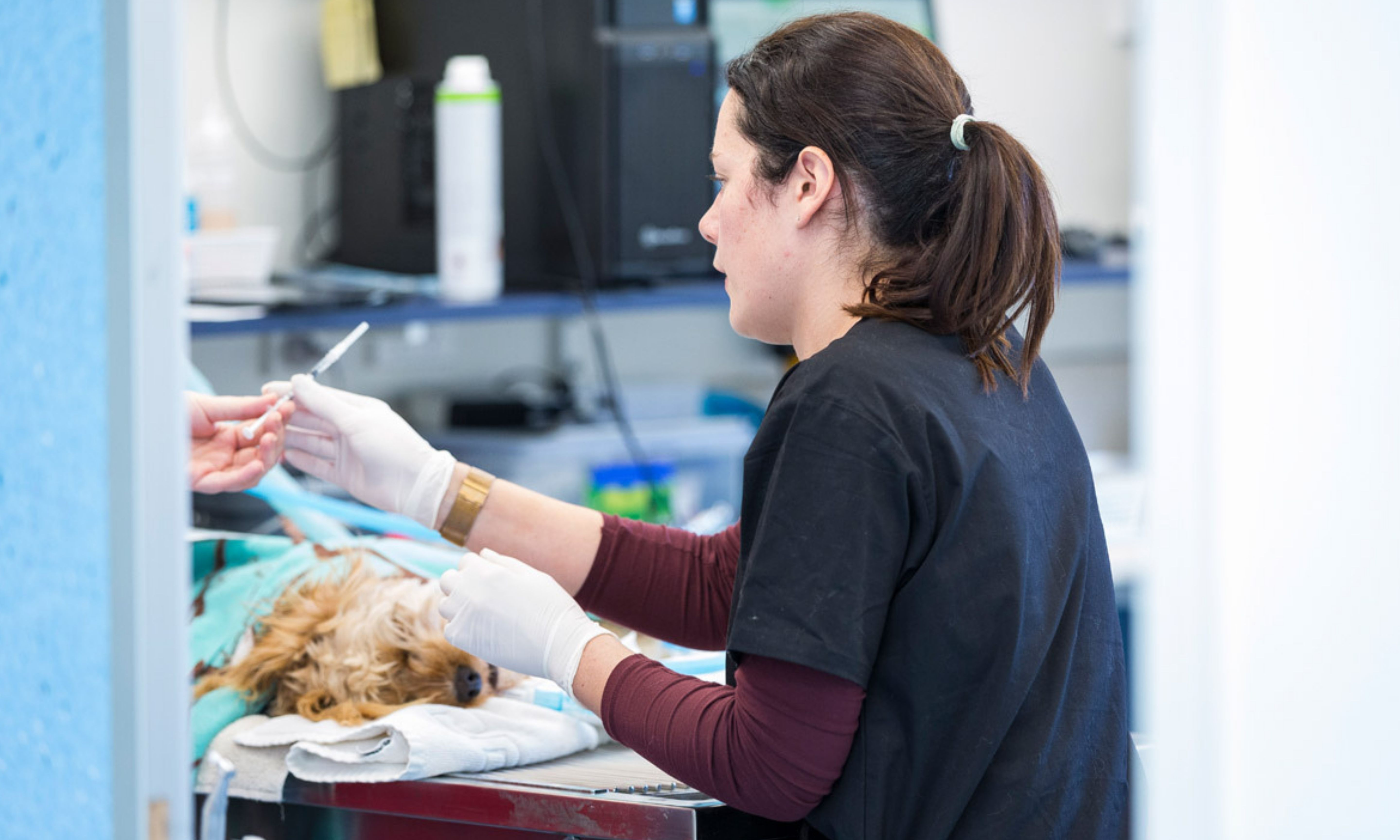Welcome to our March update. This issue includes some information about APC renewals, guidance for Phase 3 of the Omicron response; and other news from across our sector.
Dealing with difficult client interactions
We’ve received reports from veterinarians around the country of increased conflict situations with clients and the public, mostly around issues relating to COVID-19 protocols and vaccination requirements.
As a quick reminder, personal health and safety comes first and we do not expect veterinarians to put themselves at risk when providing care or dealing with confrontational clients and members of the public.
Veterinarians and clinics are entitled to put in place appropriate precautions to protect the health and safety of themselves, their colleagues and their clients and this can include COVID-19 vaccination requirements, if deemed necessary after a risk assessment (see more on risk assessments here). Our position is that normal and appropriately applied COVID-19 safety protocols (including vaccination requirements) are not professional standards issues and would not give rise to concerns that we, as the regulator, need to address (if, for example, a member of the public raised concerns with us).
Equally, we recognise that the precautions taken by individual clinics will differ from clinic to clinic based on their assessments of the risks they are facing in their unique circumstances. This is to be expected and we consider that clinics can legitimately arrive at different sets of rules and protocols, based on their own circumstances.
We've previously issued statements recognising the difficult situation the profession is in at present and providing reassurance that we will approach issues with pragmatism and compassion. These statements continue to apply and also provide some commentary around refusing new clients and ending the relationship with existing clients that may be helpful.
We are here to help with any questions or concerns you may have so please feel free to contact us. Our health and wellbeing page for veterinarians has resources and information that may be helpful as well as information on where you can get help and support. Our workplace wellbeing page also has information and resources for promoting wellbeing in the workplace.
Renewing your Annual Practising Certificate for 2022-23
We’re working hard on finalising the application form for renewing your Annual Practising Certificate (APC) this year. You should receive an email inviting you to apply in the next week. As always, there will be an early payment discount for those who apply and pay the APC fee early. All renewals need to be completed by 31 March.
Here are some resources for you to start preparing:
Like many, we are feeling the impacts of the Omicron outbreak and this means we are a bit shorter staffed than usual. We'll do our best to make the renewal experience as quick and simple as possible for you but there may be some minor delays. We'll also be asking that any queries are sent to us by email, not phone, where possible.
VCNZ articles and guidance
Here are some articles we’ve published on our website since our December update:
Omicron Phase 3
Now that we are in Phase 3 of the Omicron outbreak, here is a reminder of some of the key points:
- Close contacts no longer need to self-isolate, just monitor for symptoms and get a test if you develop symptoms.
- Household contacts (definition available here) must self-isolate for 10 days and must get tested on days 3 and 10 of isolation (or sooner if symptoms develop). If another person in the household tests positive, the isolation period does not restart provided the household contact does not experience any symptoms. There is further guidance for household contacts here.
- If you test positive for COVID-19, you will have to self-isolate for 10 days and can leave isolation after 10 days without having to get a test.
- The close contact exemption scheme and “bubble of one” will still operate for household contacts.
You can read more about the rules here and the close contact exemption scheme and “bubble of one” here.
Getting Rapid Antigen Tests
General information about RATs can be found on the Government COVID-19 website.
Testing sites where critical workers can be tested for the return to work exemption scheme can be located here.
Yesterday, the Ministry of Health launched a new website that allows household contacts, critical workers (for use under the exemption scheme) and those with symptoms to order RATs online for collection. Those who can't access the website can call 0800 222 478 (option 3).
Business NZ maintains a list of commercial suppliers of RATs, which may be useful for clinics that choose to obtain them for purposes not covered by the MoH website (e.g. for in-house screening).

Messages from others
The items below come from other organisations. We've agreed to share them with veterinarians because they may be of interest. If you have any questions or concerns about them, contact the organisation directly.
Update on Veterinary Education at Tawharau Ora – School of Veterinary Science
The nation’s reliance on overseas trained veterinarians to meet domestic demand has been brought into stark relief by pandemic-related border restrictions inhibiting the free movement of labour.
Over the last 18 months, NZVA, VCNZ and Massey University have been engaging with the Tertiary Education Committee (TEC) - the arm of Government which funds higher education on behalf of the Ministry of Education - regarding the fixed cap on the number of domestic BVSc students the School can train, and the funding rate received for each student. Currently, the domestic student intake is capped by Government at 100, and in addition, the School enrols 25-30 full fee paying international students each year.
Following the outcome of our formal submissions to TEC, we can now report that Massey is planning for a substantive increase in the BVSc intake in 2023. The reason for the delay until next year is twofold. Firstly, prospective approval from the BVSc course accrediting bodies is required for a substantive increase in intake, and secondly the increase requires the implementation of a new BVSc curriculum, as the current curriculum could not logistically accommodate a much larger class. The exact size and makeup of the increase is yet to be finalised but will likely see increases to both the domestic and international student intakes.
The School would like to give advanced notification that they will shortly start a consultation process with stakeholders regarding the BVSc curriculum. The review represents a once in a generation opportunity to define a new curriculum for the New Zealand profession. More information will follow in due course.
Subscribe to the NZVJ email
This email update comes out bimonthly when each new issue of the New Zealand Veterinary Journal (NZVJ) becomes available online, and contains a description of the articles in the latest issue along with news and updates on the Journal, our editorial board, and our authors.
To join the mailing list to receive our email update of the most recent news from NZVJ, please contact the editorial team by emailing [email protected]
Review of the AVBC Accreditation Standards
The mission of the Australasian Veterinary Boards Council (AVBC) is to ensure the quality of the veterinary profession in Australia and New Zealand, and that veterinary qualifications are recognised internationally. In 2022, AVBC is undertaking a major review of accreditation standards for entry-level veterinary programmes. During this early stage of the review, the AVBC is inviting stakeholders of veterinary services and veterinary education to take part in a short survey
Your perspectives and suggestions are invited on a series of questions relating to the current standards, the new RCVS standards, and veterinary education more broadly. Updates will be posted on the AVBC website during the review, and there will be further opportunity for comment on draft standards in the second half of 2022. The survey can be accessed on the >AVBC website. The survey will close on 23 March 2022. Anyone wishing to submit feedback by email, rather than via the survey, can direct a submission to [email protected]

Ma whero, ma pango, ka oti te mahi